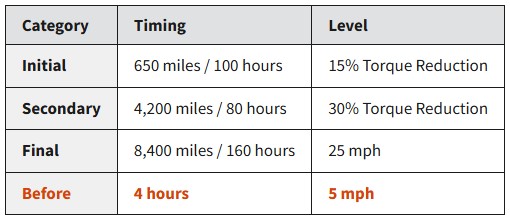The Trump administration has issued new guidance on diesel exhaust fluid (DEF) systems aimed at avoiding sudden engine shutdowns that sideline trucks and cost truckers money.
U.S. Environmental Protection Agency (EPA) Administrator Lee Zeldin on Tuesday announced the new guidelines, “developed in collaboration with manufacturers,” to ensure that existing diesel trucks, which use DEF to reduce nitrous oxide emissions, do not experience sudden engine failures, known as “derates,” after running out of the fluid.
Starting with model year 2027, all new diesel on-road trucks must be engineered to avoid sudden power loss and resulting derates after running out of DEF.
“We have heard loud and clear from small businesses across the United States that the current DEF derates are unacceptable,” Zeldin said.
“It is unacceptable that farmers, truckers, construction workers, and many other small businesses continually experience failures of diesel-powered equipment when they need it most – costing millions of dollars in lost productivity.”

Current DEF and selective catalytic reduction (SCR) systems employ engine derates that force a truck to reduce speed to as little as 5 mph or become inoperable within hours of a DEF-related fault.
“Although this derate strategy was intended to ensure compliance with EPA’s Tier 4 Emissions Standards, it has caused needless frustration, operational delays, and real economic hardship for countless farmers, truckers, and equipment operators,” the agency stated.
Under the new guidance, a warning light appears for 650 miles after a fault is detected, with only gradual engine derates occurring over a total of 8,400 miles or 160 hours, ending with the engine slowing to 25 mph (see table).
The extended period is expected to give truck drivers much more time to diagnose and fix system problems.
“EPA’s guidance establishes more common sense inducement schedules that will help drivers maintain safe control of their vehicles as they diagnose and remedy faulty DEF/SCR systems,” commented Owner-Operator Independent Drivers Association President Todd Spencer.”
“More flexible inducement speeds and times will help truckers finish their trips, plan for necessary maintenance, and avoid parking their truck for an extended period simply because of a false alarm. Nonsensical inducement rules have sidelined small-business truckers for too long and this accelerated relief shows what can be achieved when regulators hear directly from the people doing the job.”
Related articles:
How Diesel Exhaust Fluid is Impacting the Trucking Industry
Fuel-Saving Strategies Worth Trying in 2025
Raw component costs send diesel exhaust fluid prices soaring
Click for more FreightWaves articles by John Gallagher.
The post EPA aims to keep diesel trucks on the road appeared first on FreightWaves.




















